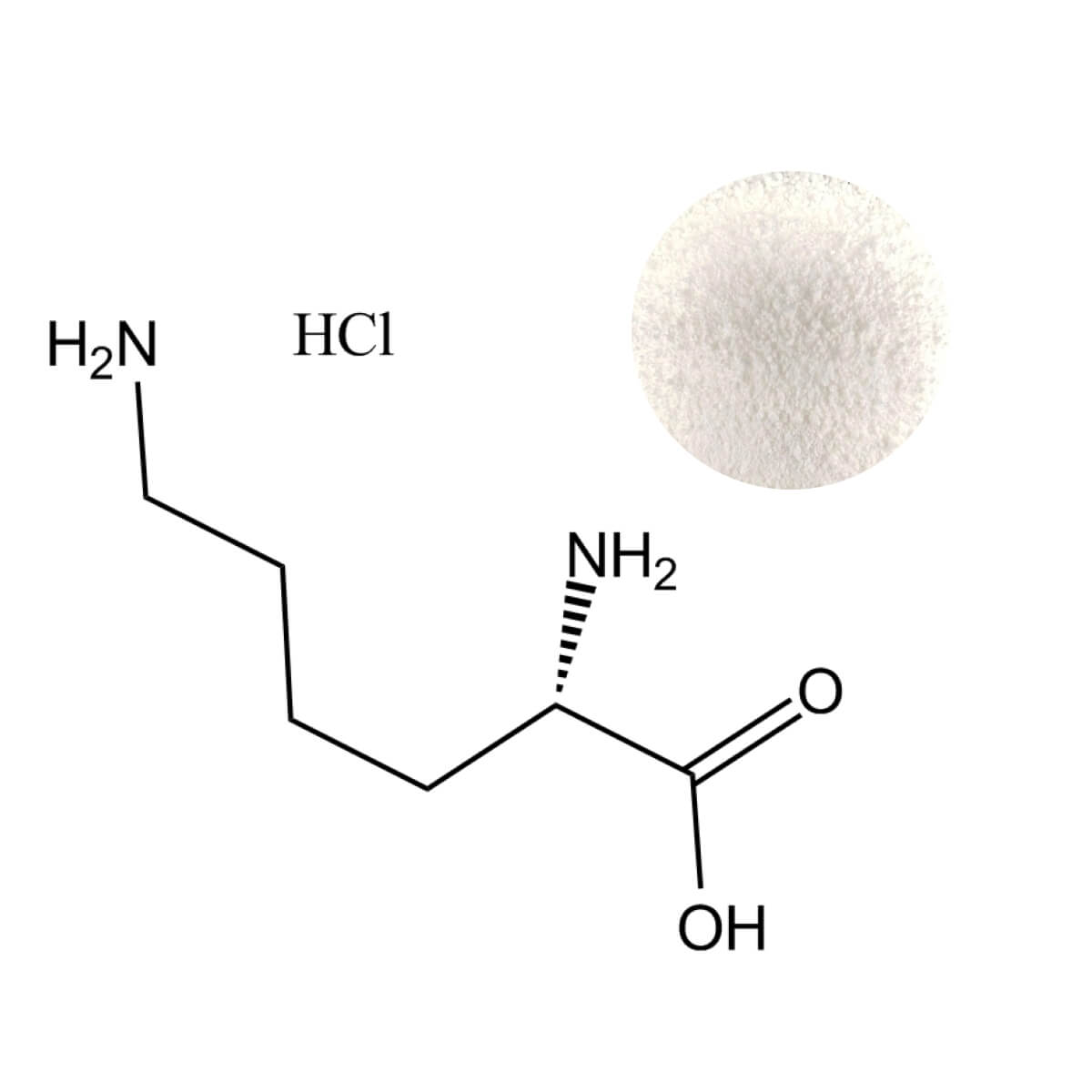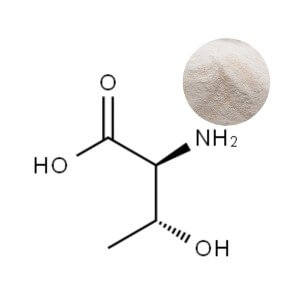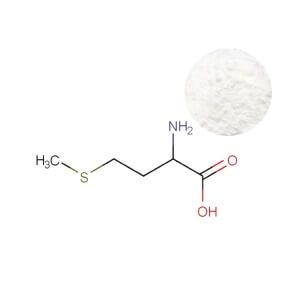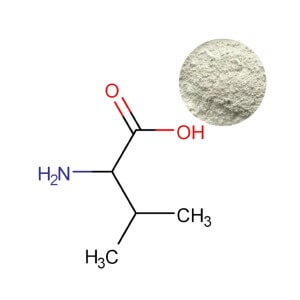
L Lysine HCl Powder
| Product Name | L Lysine HCl Powder |
| CAS Number | 657-27-2 |
| Appearance | White to off-white crystalline powder |
| Purity | ≥98% (HPLC) |
| Packaging | 25 kg/bag |
| MOQ | 25 kg |
Enhance Your Animal Nutrition and Supplement Formulas with L-Lysine HCl
When you're developing animal feed or human supplements, don't overlook L-Lysine Hydrochloride. At Oclean Nutra, we supply high-purity L-Lysine HCl that boosts product performance while keeping costs manageable. Here's the thing—this essential amino acid delivers tangible results. Think better feed conversion in poultry operations or increased bioavailability in dietary supplements. It's not just theory; we see it working for our clients every day.
What Is L-Lysine Hydrochloride, Really?
Let's break it down. L-Lysine Hydrochloride (CAS 657-27-2) is the hydrochloride salt form of the essential amino acid L-Lysine. Now, why does this matter for industrial applications? Simple—the HCl form gives you better stability, improved solubility, and more consistent bioavailability compared to the base form. Animals and humans can't produce L-Lysine naturally, so it has to come from diet or supplementation. That creates real opportunities for formulators who understand how to leverage it properly.
The crystalline structure and reliable purity (typically 98.5% minimum) make it perfect for precision formulation work. You get predictable performance batch after batch—something that really matters when you're manufacturing at scale.
How L-Lysine HCl Is Produced
Today's L-Lysine Hydrochloride comes mainly from advanced fermentation processes using Corynebacterium glutamicum. This isn't basic chemistry—it's sophisticated biological manufacturing that needs precise control over temperature, pH, oxygen levels, and nutrient feeds. The result? A highly pure, consistent product that meets the strict specs of global feed and supplement manufacturers.
Sure, natural sources like meat and legumes contain L-Lysine, but the concentrated hydrochloride form is specifically manufactured for commercial applications where dosing accuracy and purity are non-negotiable. We work with established production partners to ensure consistent quality without the premium price of going directly to manufacturers.
Where L-Lysine HCl Actually Delivers Value
Let's talk real-world applications. The benefits span multiple industries, but they all come down to one thing: measurable improvements you can see in your products.
In animal nutrition, L-Lysine HCl works as a strategic tool:
- Poultry operations consistently report better growth rates and improved feed conversion ratios
- Swine production shows clearer muscle development and stronger reproductive performance
- Aquaculture formulations hit better growth metrics, especially for species like salmon and trout
- Feed cost management becomes more achievable through optimized protein content—something our clients appreciate
- Environmental impact improves with better nitrogen utilization, reducing waste
For human supplement manufacturers, the advantages stand out just as much:
- Collagen production support that actually works in recovery formulas and connective tissue health products
- Better mineral absorption, particularly calcium for bone health supplements
- Protein synthesis enhancement that supports metabolic function effectively
- Essential for plant-based diets where natural L-Lysine sources tend to be limited
- Superior processing characteristics with better mixability and stability during manufacturing
Why Consistent Quality in L-Lysine HCl Really Matters
Here's something we've learned from years in this business: not all L-Lysine Hydrochloride performs the same. When you're sourcing ingredients for commercial applications, consistency and purity aren't just nice-to-haves—they're essential for protecting your business and reputation. Our product meets international standards with comprehensive documentation, including batch-specific Certificates of Analysis.
We maintain strict quality control through our production partnerships. You get reliable, high-quality material without the headaches of dealing directly with multiple manufacturers. It's one less thing to worry about in your supply chain.
Key Technical Specifications You Should Know
The production process involves multiple precision steps, from microbial fermentation in controlled bioreactors to purification and crystallization. Carbon sources like molasses provide the foundation, while specific minerals support optimal growth conditions.
Critical specifications for industrial users:
- Appearance: White crystalline powder—consistent batch to batch
- Assay (on dried basis): 98.5% minimum, often higher
- Specific rotation: +19.0° to +21.5°
- Loss on drying: ≤1.0%
- Residue on ignition: ≤0.2%
- Heavy metals: ≤10 ppm—well below safety thresholds
Packaging and Supply Chain You Can Count On
We get it—dependable supply chain management matters as much as product quality. Our standard packaging is 25 kg drums, but we're flexible to match your production schedule. With a solid 24-month shelf life when stored properly, you can plan your inventory with confidence.
Regulatory compliance is built into our approach from the start. L-Lysine Hydrochloride holds GRAS status with the FDA and appears in major international pharmacopoeias. We provide complete documentation support, including Safety Data Sheets tailored to your specific requirements. No surprises, just reliable compliance.
Straight Talk on Handling and Safety
L-Lysine Hydrochloride has an excellent safety profile when handled correctly. Potential side effects are rare and generally limited to gastrointestinal issues at very high doses. Recommended intake varies by application but typically falls between 500-3000 mg daily for adults.
In manufacturing environments, standard powder handling procedures apply. We recommend appropriate protective equipment and adequate ventilation. Our technical team offers practical handling guidance—real advice from people who've been in your shoes.
Ready to See What L-Lysine HCl Can Do for Your Formulas?
When you're ready to explore how L-Lysine HCl can improve your products, we're here to help with technical details, samples, and competitive pricing. We focus on building partnerships that deliver genuine value to your operations—not just moving product.
Reach out today to request technical data sheets or discuss your specific application needs. Let's find the right solution for your formulation challenges.
Frequently Asked Questions
Share this product
Related Products
Ready to get started?
Contact our team for technical specifications, pricing, and customized solutions.



